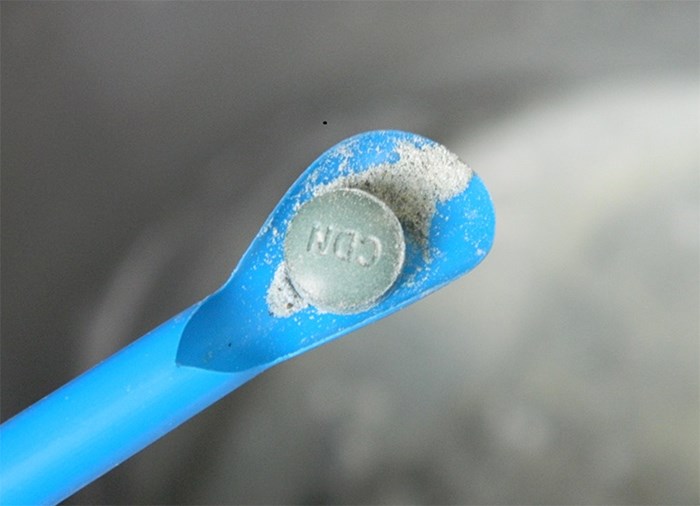 Fentanyl. Photo courtesy RCMP
Fentanyl. Photo courtesy RCMP
The Canadian Mental Health Association (CMHA) is calling on the federal government to decriminalize the personal possession of all illegal drugs to help solve the opioid crisis.
"I think that we have to learn something from the overdose crisis that we're experiencing. I hope we'll learn that the war on drugs and treating substance use as a moral failing or as something to be punished isn't working for the people involved. It's not working for our communities," says Kendra Milne, a senior director of policy planning and government relations with CMHA B.C.
Decriminalization is one of 10 evidence-based recommendations that the CMHA outlines in a national policy paper that was released today ahead of the 2018 Liberal Party of Canada's National Convention in Halifax, which starts on Thursday.
One of resolutions to be debated at the national convention is whether the federal government should address the opioid crisis through a public health approach. The resolution takes note of actions by Portuguese policymakers in 2001 to decriminalize substances for personal use and increase access to treatment to effectively reduce the number of overdose deaths.
The Ad-Hoc National Advisory Committee for Decriminalization has also started a petition and last month the City of Vancouver recommended bringing together a task force "to implement immediate decriminalization of personal possession of illicit drugs."
The CMHA points out that decriminalization is not the same as legalization and adds that producing, supplying, and selling drugs would remain criminal offences. It recommends investing in affordable housing, childcare, education and employment to address the environmental stressors that increase the risk of substance use and mental illness.
Other recommendations include the creation of a National Pain and Addictions Strategy, universal access to psychotherapy, exploring cannabis as an alternative form of pain management, recognizing Indigenous healing practices and increasing access to methadone and buprenorphine/naloxone treatment for withdrawal.
CMHA also advocates for opening more supervised consumption sites and overdose prevention sites in communities across the country and the implementation of video teleconferencing to supervise people that use drugs alone in private residences.
"[We have to] treat substance use as a health issue and to ensure that people can access health services the way that other people can for other health issues. Part of that is decriminalizing and making sure that they have access to adequate services," says Milne.
The B.C. Coroners Service reported a decline in the number of overdose deaths across the province from 126 in January to 102 in February. Chief coroner Lisa Lapointe attributed the decline to increased availability of naloxone and the expansion of safe consumption sites. Lapointe does caution that things can change from month to month, and "March, for all we know, could be a much worse month."


